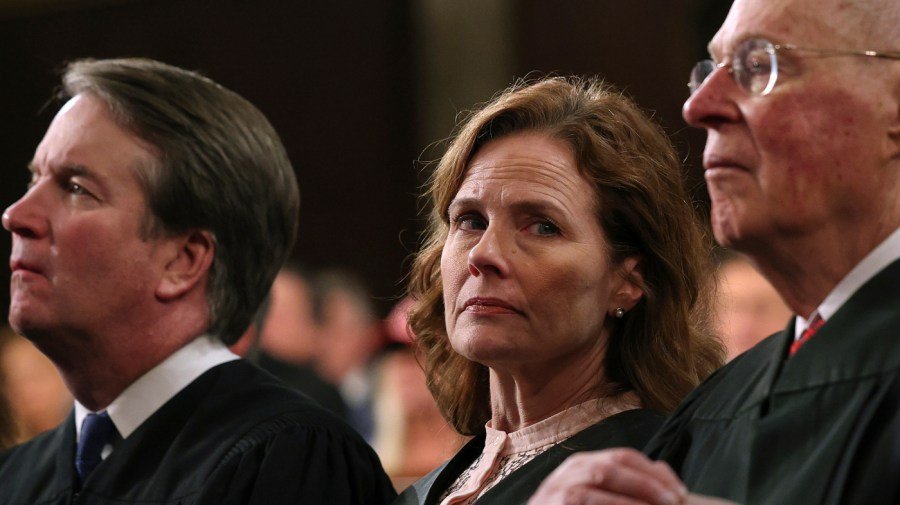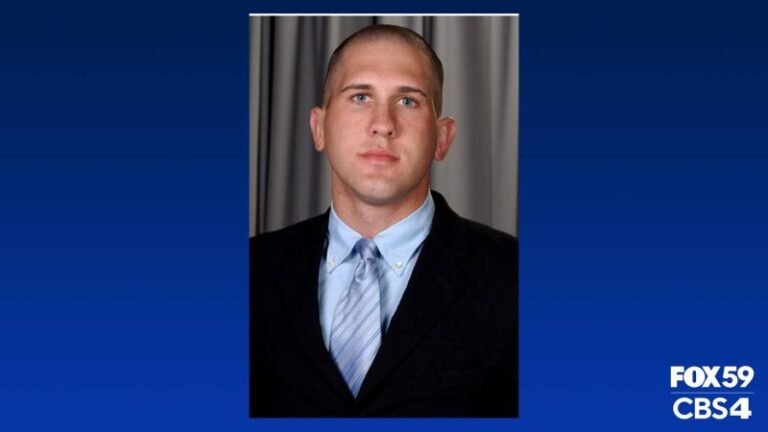
A bedrock of American exceptionalism has been the prohibition on using tax dollars to support religion. In America’s “melting pot,” public schools must be open to all without any religious preference or indoctrination.
In a 4-4 decision (with Justice Amy Coney Barrett recusing herself for an apparent conflict), the Supreme Court rejected an effort to demand tax dollars to create a Catholic public charter school. The planned public school in Oklahoma would have required attendance at Catholic Mass, indoctrinated students in Catholicism and apparently discriminated in hiring and admissions.
But when Barrett participates in a future case, without some reconsideration, it is highly likely that the current court will permit taxpayer-funded public schools controlled by a particular church. If so, every church will be able to demand equal access to taxpayer dollars.
This should concern all Americans.
The First Amendment prohibits government establishment of religion, but what exactly does that mean?
At a minimum, it should prevent the government from picking what is the “correct” religion. As the Supreme Court explained, the First Amendment prohibits the “State or Federal government” from giving “official support” to “the tenets of one or of all orthodoxies.”
But that is exactly what the teachers and administrators at the proposed St. Isidore’s would have done. These government employees, paid with tax dollars, would use government funds to endorse and advance Catholicism.
Oklahoma Superintendent Ryan Walters has tried to normalize this government endorsement of religion. He argues misleadingly that “individuals have the right to express their religious beliefs. That does not stop in a school building.”
That is true for private individuals. But teachers, serving in a public classroom, are government officials and stand in the stead of the government. On their own time, they can support any religion they like.
On its face, this seems like the clearest possible violation of the First Amendment.
The first Supreme Court case on religious establishments unanimously endorsed Thomas Jefferson’s 1802 declaration that the Constitution imposed a “wall of separation between church and state.” Jefferson explained that when officials assume “dominion over the faith of others, setting up their own opinions and modes of thinking as the only true and infallible, and as such endeavoring to impose them on others,” they violate religious freedom.
Eighteenth-century evangelicals emphatically agreed. Supported by James Madison’s Memorial and Remonstrance Against Religious Assessments, they rejected even non-discriminatory aid for all Christian religions. They warned that blending church and state taints both entities.
Baptist minister Lewis Lunsford explained that “the unlawful cohabitation between Church and State, which has so often been looked upon as holy wedlock, must now suffer a separation and be put forever asunder.”
The wall of separation between church and state has been broadly endorsed by Americans and the courts. Yet, in recent years, conservative justices have sought to advance a political agenda to circumvent that wall.
Now, some conservative judges and Christian nationalists have settled on a new tactic to undermine the separation of church and state: nondiscrimination.
Their argument goes like this: Since private secular schools get government funds, assistance for playground equipment, for example, failing to provide taxpayer dollars to religious schools is discrimination and violates other provisions of the First Amendment, the “free exercise” and “free speech” clauses, they argue.
But there are several problems with extending the nondiscrimination argument to a public charter school. The school itself will be a public school, funded by taxpayer dollars. It does not have a “free exercise” right to practice a particular religion; no governmental entity does.
Supporters of the Catholic school cite instances in which the court has permitted private schools to preach religion to students. But those cases are fundamentally different: Those schools are private; even when they receive some government voucher funds from students, they are not public schools fully funded by tax dollars. In private schools, teachers do not speak for the state.
Second, the Catholic charter school has been clear that it would seek an exemption from standard non-discrimination and other requirements based on religion. This is seeking to exploit another breach in the wall of separation that conservatives on the court encourage, claiming that neutral government laws can be ignored if they conflict with a claimed religious belief, a self-defined right to an exemption from virtually any law.
This view has been soundly rejected by Jefferson and the late Supreme Court Justice Antonin Scalia, for example.
Sadly, once a new case arises and Justice Barrett participates, there is a strong indication that the court will permit a Catholic school to operate with taxpayer dollars, a point that Oklahoma Gov. Kevin Stitt (R) is trumpeting.
But this dramatic expansion of the non-discrimination argument has enormous implications. Obviously, Mormon, Episcopalian, Islamic, Jewish and Buddhist charter schools will be able to demand government funding.
Even more broadly, if the government establishes an organization to engage in scientific or medical research, will churches complain that it should also create Presbyterian, Islamic or Buddhist organizations so as not to discriminate?
Beyond the First Amendment, charter schools are an assault on the broad public education that has been the great American equalizer, assimilator and opportunity. Charter schools notoriously fail to deliver on improved education and, as with similar voucher programs, tend to benefit the rich.
If the court eventually accepts a religious charter school, the legislature should end the whole charter school program (and vouchers while it is at it).
Justice Sandra Day O’Connor, appointed by President Ronald Reagan, got it right: “Those who would renegotiate the boundaries between church and state must therefore answer a difficult question: Why would we trade a system that has served us so well for one that has served others so poorly?”
The simple answer is that we shouldn’t want that. Christian nationalists want to impose their religious beliefs on the nation, and we shouldn’t let them.
John A. Ragosta, former acting director of the International Center for Jefferson Studies at Monticello, is the author of “Religious Freedom: Jefferson’s Legacy, America’s Creed.”


